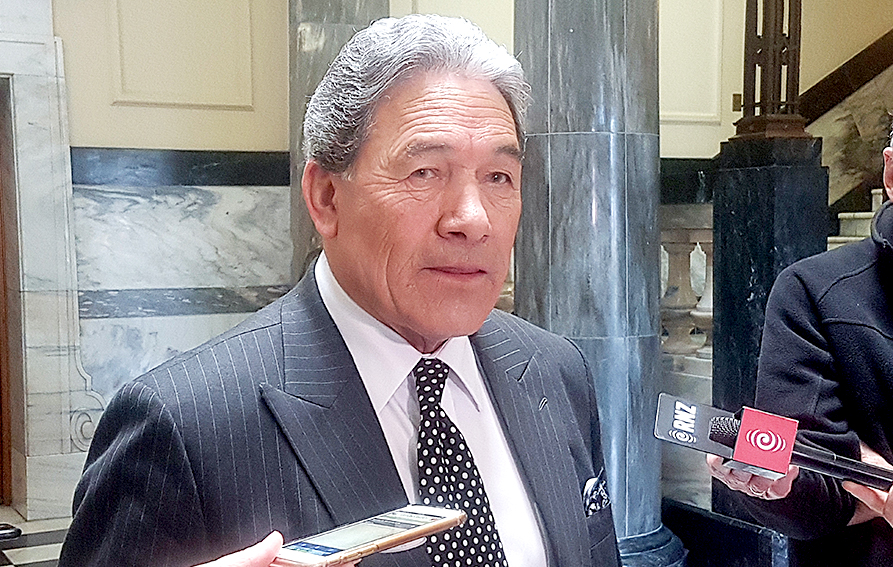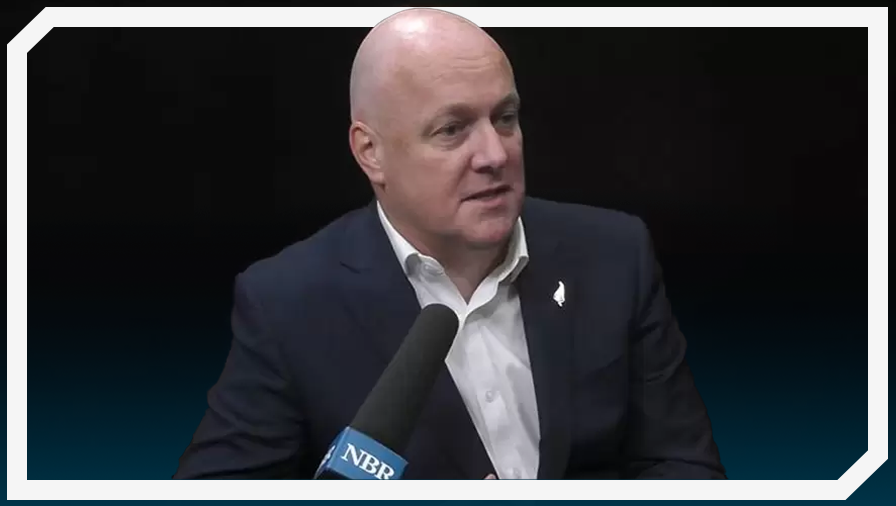Dealing with Winston, the first 100 days, smoking backtrack
ANALYSIS: Peters’ grumpiness with the news media should come as no surprise.
WATCH: NBR political editor Brent Edwards speaks with Grant Walker.
ANALYSIS: Peters’ grumpiness with the news media should come as no surprise.
WATCH: NBR political editor Brent Edwards speaks with Grant Walker.
Just days into the new coalition Government, and Prime Minister Christopher Luxon is having to spend time defending his Deputy Prime Minister and New Zealand First leader Winston Peters.
Peters has begun his fifth stint in government – surely a record – in a surly mood with the news media, but when hasn’t he been grumpy with journalists?
This time, he has accused the media of being bribed by the former Government’s Public interest journalism fund, and then went a step further saying he was at war with the media. It comes at a time when journalism in this country is under more attack than ever, and that hostility is spilling over to social media abuse and even physical confrontations.
After initially ignoring Peters’ comments, Luxon offered some sympathy for his views about the Public Interest Journalism fund, telling his first post-Cabinet news conference that National had also had doubts about the fund. But is Luxon really suggesting the news media was bribed by the fund to give the former Government nothing but good press? Any rational analysis of news coverage of the former Government would give a lie to that suggestion.
It also seemed ironic that, just days later, Peters – speaking as Foreign Affairs Minister at the United States Business Summit in Auckland – spoke of the ties that bound New Zealand and the US.
“Our institutions are founded on democratic values, respect for human rights, freedom of speech and assembly, and free and fair trade,” he said.
A free press is also a fundamental part of Western democracy.

Deputy Prime Minister Winston Peters.
It also seems ironic that Peters criticised the fund, given New Zealand First’s media and broadcasting policy proposed government funding for media organisations through support for regional papers and regional stations, examining tax deductions for domestic news subscriptions and large corporate sponsorships of news outlets, future-proof funding for iwi radio, and extending funding for Access and Community radio. To be fair, the policy also included what looks like relatively heavy-handed government intervention in the news media, but none of this was included in its coalition agreement with National.
Peters’ grumpiness with the news media should come as no surprise. It has always been in his playbook to have a fractious relationship with the news media, as part of his appeal to disgruntled voters who distrust the country’s institutions, including the news media. He has also been upset by what he felt was a slight on him and New Zealand First by many in the media when they ‘ignored’ the party right up until the last few weeks of the election campaign.
Luxon has taken a different approach to the media by being more approachable and generally more positive and friendly in his encounters with journalists.
Labour leader Chris Hipkins says Luxon needs to haul Peters into line following his attacks on the media but, for now, the Prime Minister is happy to let his deputy and coalition partner go to war on journalists.
This will likely not be the last time Luxon is called on to haul Peters into line.
This also comes as the coalition announces its 100-day plan, which includes repealing Three Waters reform, the Resource Management Act reforms, fair pay agreements, the Auckland regional fuel tax, the clean car discount, Auckland light rail, speed limit reductions, and the Māori Health Authority.
Luxon calls it an ambitious programme and says the coalition will do more in 100 days than the former Government had done in six years. Yet much of the 100-day action plan is not actually the Government doing anything. It is a matter of it tearing things down. That is relatively easy to do.

Labour Party leader Chris Hipkins.
People might get a better idea of the Government’s agenda when Parliament is formally opened next week and the Governor-General reads the speech from the throne, which will outline the coalition’s work programme for this parliamentary term, clearly building on what was included in National’s coalition agreements with Act and New Zealand First.
Meanwhile, Green Party co-leader Marama Davidson has labelled the 100-day plan “a random, visionless, and harmful grab-bag of policies” and Labour leader Chris Hipkins has questioned the affordability of the coalition’s plans.
Much, of course, will depend on the economy and, in its Monetary Policy Statement, the Reserve Bank warned this week that interest rates might still have to go up again to rein in inflation, as it announced it was keeping the official cash rate on hold at 5.5%.
The day before the announcement, bank governor Adrian Orr and Treasury secretary Dr Caralee McLiesh met with Luxon. Apparently there was a rapprochement. After years of National attacking Orr and saying he should never have been reappointed long-term to the role, Luxon now has confidence in the bank and its commitment to bring inflation down.
But, just to make sure, the coalition will pass legislation before Christmas removing the bank’s dual mandate – which includes sustainable, full employment – to make it solely responsible for keeping inflation between 1 and 3%.
NBR presenter Grant Walker asks whether it will make a difference.
It is hard to say. Orr told a news conference this week the bank already gives greater prominence to inflation targeting.

Prime Minister Christopher Luxon.
Finally, the Government is also getting flak for its decision to scrap amendments to the smokefree legislation. These had not yet come into effect but would have clamped down further on the sale of cigarettes and the use of nicotine, as part of the goal of being smoke free by 2025. Health groups have been unanimous in their condemnation of the Government’s decision, particularly after Finance Minister Nicola Willis said the money saved – which requires more people than predicted to smoke – would help pay for its tax cut programme, including bringing back interest deductibility for landlords.
The decision has drawn international news coverage, with France’s AFP saying the Government was jettisoning “world-leading measures” and Euronews reported it was a “win for the tobacco industry”.
Labour drew attention to the fact that senior minister Chris Bishop used to be a tobacco industry lobbyist, but he dismissed any suggestion he played a part in scrapping the amendments.
But, just as Peters – and some National ministers, including Bishop – raise suspicions about the Public interest journalism fund, the decision on scrapping amendments to smokefree legislation can look equally as smelly.
Brent Edwards is the NBR political editor.